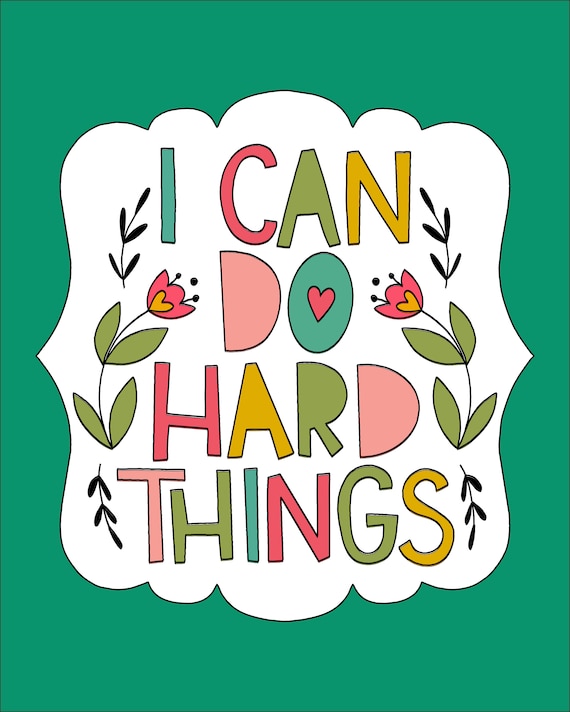As we near the close of 2020 we can't help but look forward to a brighter future in 2021 after the tumultuous misadventure this year has been. But a looming new year isn't the only thing brimming with potential. Every time we look at our child this is what we should see. We have such high hopes for our children and the sky truly is the limit. As they grow, we ask them intermittently what they want to be when they grow up to watch those dreams mature as they do. And as they move beyond the goals of "super hero" or "princess" and find more practical passions and interests we can't help but ask ourselves what do we hope for our child? If you could pick one thing for them to be when they grow up what would it be? Many of us would think happy, fulfilled, or successful. All of which are noble wishes of course, but what is the true goal?
I feel a more accurate wish for our children is that they become capable. Amongst a world of many options, opportunities and distractions I want our little ones to grow up capable. Capable of caring for themselves and their loved ones. Capable of standing up for the right thing. Capable of being a good friend. Capable of making their own decisions. Capable of succeeding, but also picking themselves back up when life gets hard. Capable of the mundane odds and ends of life like changing a tire or maintaining a home. I say this looking at a world full of young adults who are a little less than capable and more than a little fragile when compared to other generations. So here are a list of lessons to help make your child a little more capable when they grow up.
Capable of hard work
Thomas Edison famously stated, "Opportunity is missed by most people because it is dressed in overalls and looks like work." And while overalls are no longer the requirement of our day to day life, it is easy to see that it is hard to fully reach our potential without the ability to truly buckle down and work hard. And the beauty of hard work is you can start instilling it in your child no matter where you are. For example: stop hiring out hard jobs. You don't need someone special to sand, paint, or upkeep the lawn. Those sweaty tasks were ours for as long as I can remember. Treat their school as a work ethics training ground and allow them to suffer the consequences when they don't follow through. Being a hard worker is a character trait that can push you forward, so teach them young.
Capable of resilience
No matter our age, life can be hard. And while our initial response may be to step in and shield our child from adversity and smooth their way, it is important to remember that hardship is an excellent teacher. There are life lessons in failure that cannot be learned any other way, and you don't get a diamond without a little pressure so don't be afraid to let life 'squeeze' your kiddo a little bit and show them just how strong they are capable of becoming.
Capable of basic life skills
There are some basic skills not covered in home economics that should be learned before our children leave the nest. Teach them the basic budgeting and finance. Teach them to care for and maintain their investments (be it a car, home or relationship). Teach them to unclog a toilet, change a lightbulb, and switch out a flat tire. Teach them to use basic tools. Teach them the basics of cooking, shopping, meal prepping, etc. Life as an adult gets busy quick so why not give them an advantage while we can.
Capable of being a good friend
Unfortunately, we won't always be around to look after our child's emotional and mental wellbeing. So teach them to seek out good relationships and how to be a good friend in return. Our digital world, has distorted the worth and definition of friends. So teach your child the difference. Teach them to seek out loyal friends, who keep them accountable, encourages them, celebrates and mourns with them as needed. Friendships are pivotal in shaping your child so save you both some heartache and teach them young.
Capable of protecting their family
There are many aspects to this one and it kind of depends on who you and your family are. Maybe you're a family that trains together in self-defense for the worst case scenario. Maybe you're a health focused family fighting against a family history of disease. Maybe your protection of choice is fighting for financial security. Maybe you fight to protect your family and your relationships by setting healthy boundaries and working to have a good/work life balance. There are many ways of protecting our family and you can model and teach these best while your kiddos are young. Stressing the importance of family and those traditions now will also help during the years when they start to stretch their wings and leave the nest.
We know that childhood is a busy and magical time. It is so easy to get caught up in the short term goals of day to day life. Just surviving this phase. Getting through this school year. Learning to do this thing. However, there truly is benefit in parenting with a more long term focus. Think about the adult you hope your child will become and work backwards from there. Ask yourself "What can I do today to foster that goal?" Because what makes your child happy at age 5, 10, or 15 is quite different from what makes them happy at 25, 35, and beyond. There are a million ways to love a child, but in our quest to make them happy, let us be mindful that long term goals of raising a child with strong character is much more pivotal than any short term goals involving a report card, trophy, game or recital will ever be.



























:max_bytes(150000):strip_icc()/Getty_productivity_in_language-165797339-576f05113df78cb62c822050.jpg)

